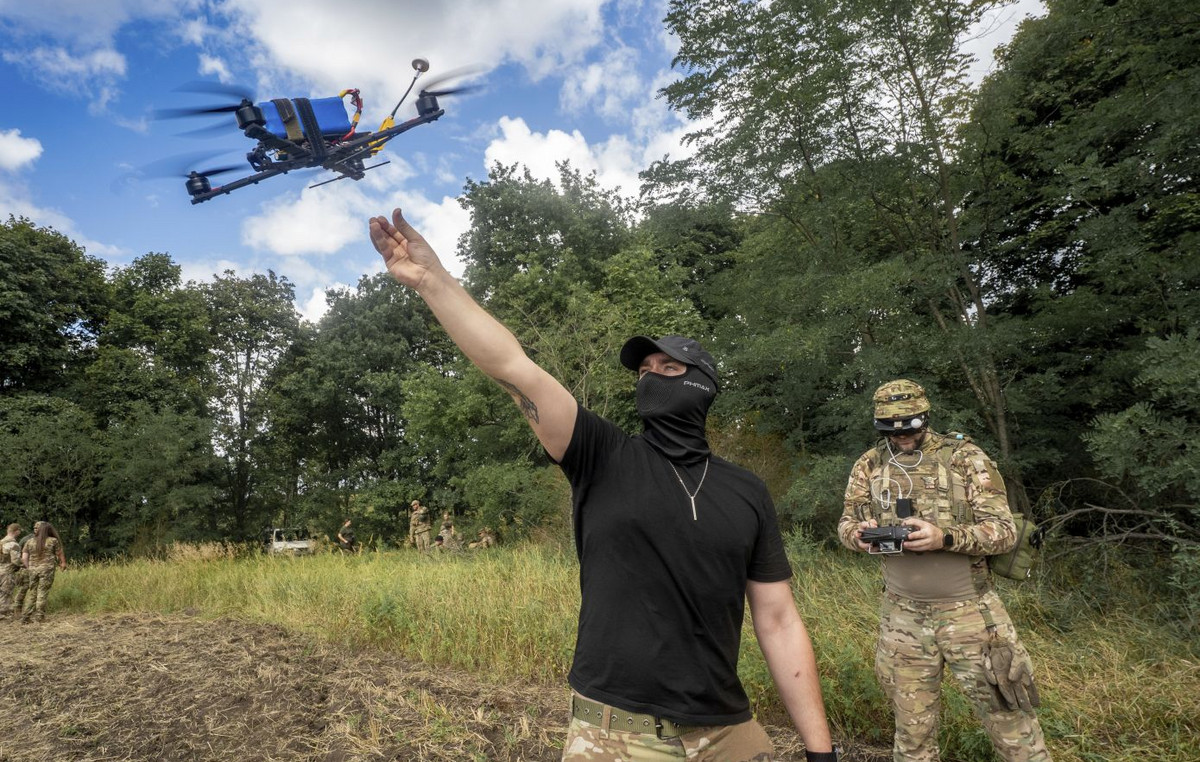After two years of a pandemic, some questions about the coronavirus remain unanswered. Today, the scientific community already knows, for example, how the virus spreads, that SARS-CoV-2 mutates, that vaccines prevent serious cases, but that booster doses are needed and other things.
Although some answers are already known, other questions about the origin of the virus, the long Covid, sequelae of the disease, reinfection, emergence of new variants and other points remain without a closed answer.
To understand the context of what is not yet known about the coronavirus, the CNN talked to experts on the topic.
Where the virus may have originated
The WHO released a report pointing out that the coronavirus is likely of animal origin. According to the document, “all available evidence suggests that Sars-CoV-2 [nome do vírus causador da Covid-19] has natural animal origin and is not a manipulated or constructed virus”.
The strain that causes the pandemic was initially identified in 2019 in China. Coronaviruses have long been known to cause respiratory infections. What science has information today is that the mutation that causes Covid-19 may have emerged in animal markets in the country.
The infectologist and researcher at Fiocruz, Julio Croda, spoke to CNN that the phylogenetic data showed that there is a proximity of identification of the viral strains initially seen in definitive hosts of bats. “However, an identification of the intermediate host is lacking,” he says.
Robson Reis, an infectious disease specialist and professor at the Bahia School of Medicine and Public Health (EBMSP), explained that this intermediary occurs when a bat transmits the virus to another animal, which then transmits it to a human.
Animal markets in China are common. This is a cultural issue in the region, as he explained to CNN Isabella Ballalai, vice president of the Brazilian Society of Immunizations (SBIm).
“Many influenza viruses are born in China, including avian flu. That’s the way they relate to animals, it’s cultural habits. There is no right or wrong,” she said.
The infectologist at the Brazilian Society of Infectious Diseases (SBI) and professor at the Federal University of Triângulo Mineiro, Rodrigo Molina, told CNN that the mutation that causes the pandemic is recent.
“It still raises many doubts, we don’t know how long it will take for total stabilization to reach an endemic condition.”
For this reason, the WHO, together with institutions and researchers, has been monitoring and evaluating the evolution of SARS-CoV-2 since January 2020.
What the coronavirus can cause in the long term
At the beginning of the pandemic, scientists around the world were trying to identify what consequences the virus could bring to the body. What they quickly learned is that the pathogen has a very high transmission rate and that it was extremely lethal.
However, as the pandemic progresses, Covid-19, or post-Covid syndrome as the WHO calls it, is still a ‘black hole’ for scientists. The term is used to name symptoms of the coronavirus that remain even after a long period of infection – not necessarily a sequel that will permanently remain.
“Now that we are seeing what the coronavirus has done in the long term. From symptoms that take longer to pass, which we call long Covid to a problem not only respiratory. It tends to lead to systemic problems that can cause, including mental changes, and we will see more of this in the future”, says Molina.
Isabella explains that the long Covid does not mean it will last a lifetime. “Most cases regress over time. It cannot be predicted.”
The researchers also don’t know how long this regression of post-Covid symptoms might last. In a study published in The Lancet, researchers found that the recovery time for most patients was seven months.
Codra says there is little data on post-Covid. “So we don’t know how long the disease, symptoms and sequelae associated with the infection remain.”
The same is defended by Isabella, who explains that, at the moment, the scientific community “has a lot of observation in practice that people get Covid for a long time, but they are still learning about it”.
Until recently, observations of the long Covid were little reported. In the UK, for example, the Office for National Statistics (ONS) estimates that around 1.5 million people in the UK have long-term Covid.
“We still have many questions to be answered in relation to the long Covid. Among them, which patients are most likely. It is still important to have a greater number of patients to be studied and articles to be published”, says Reis.
What is known on the subject is that some answers emerge, such as older patients, patients with comorbidities may have a greater risk of having long-term Covid, according to the EBMSP professor.
“These patients can have physical and behavioral, cognitive and emotional consequences. We know that patients with long-term Covid can have chronic fatigue, that feeling of continuous tiredness, more persistent cough, shortness of breath, arrhythmia, headaches”, explains Reis.
Codra also recalls that patients who are hospitalized in the Intensive Care Unit (ICU) are the most susceptible to post-Covid sequelae.
“There are several sequelae, but those who need an ICU have more sequelae after infection. But we need to monitor the collection of this data and follow the scientific literature to understand how long the long Covid can last”, evaluates the Fiocruz researcher.
Vaccines for Covid-19 and the behavior of the virus
Today, the entire world has three vaccine platforms: The inactivated virus vaccine, which is the Coronavac vaccine, from the Butantan Institute; viral vector, such as Fiocruz/AstraZeneca, and Janssen. And the mRNA vaccines, immunizing from Pfizer and Moderna — not used in Brazil.
Codra, from Fiocruz, says that there is still a lack of data, especially inactivated virus vaccines, for example. “There is a lack of data on effectiveness, protection for hospitalization and deaths, especially in the context of Ômicron, and for how long this protection will last.”
Isabella, from SBIm, said that we know a lot about vaccines. “It is science that was most prepared. All the platforms that were used for vaccines were already known. It was a short time, with a lot of effort, but an adequate time”, she points out.
For Molina, what is open about vaccines is how long they will make a person immune and against which variants. “What would be ideal is for there to be an annual vaccine that gives broad coverage for new variants that may still emerge”, she evaluates.
The World Health Organization assesses that vaccines against Covid-19 have been tested in large clinical trials that include people of a wide age range, all genders, different ethnicities and people with known medical conditions.
Reis, from EBMSP stated that it is already known that all vaccines are safe and effective. “Some have more adverse reactions, others less. Some are more effective than others, but all protect, mainly to prevent the severe form of the disease,” he points out.
About adverse events, Isabella says that large-scale global vaccination, with different age groups, ethnicities, and physical conditions was efficient to assess events clearly. However, it is not yet known what triggers the rare factors.
“We have never given so many doses at the same time, worldwide. The number of doses applied gives robustness to what we can expect from rare adverse events. And when I say rare, they are rare, even rare, you can’t tell”, says the vice president of SBIm.
Coronavirus and its variants
The big question is the behavior of new strains if they emerge, as Reis points out. “We don’t know if these variants will be more aggressive, more contagious, like Ômicron”, says the professor.
In late 2020, variants that posed an increased risk to global public health led to attentional characterization of the strains.
The WHO has separated them into specific Variants of Concern (VOIs) and Variants of Concern (VOCs), with the aim of prioritizing global monitoring and research to inform the progress response in the face of the pandemic.
The organization has already identified the following variants:
- Alpha (B.1.1.7); notified in the UK in September 2020
- Beta (B.1.351); notified in South Africa in May 2020
- Gamma (P.1); notified in Brazil, in November 2020
- Delta (B.1.617.2); notified in India in October 2020
- Omicron (B.1.1.529); notified in South Africa in November 2021.
For Isabella Ballalai, from SBIm, what is not yet known about the coronavirus is its ability to mutate. “I usually call it Russian roulette, we don’t know and we don’t know when or how a new variant will appear. But we know that as long as it is circulating in unvaccinated people, the chances are higher,” she says.
Reis defends the same. “We know what predisposes the emergence of new variants, but it is always unknown how they will behave”.
For Codra, from Fiocruz, two fundamentally important questions that the scientific community still does not know about the coronavirus are: what is the probability of new variants that escape the protection provided by vaccines and what is the protection time of immunizers, to avoid serious cases, hospitalization and deaths.
“Over the years of the pandemic, we were surprised by the high mutation rate and the emergence of new variants. We don’t know where the pandemic will go. This will depend on the speed of emergence of new variants”, says Cobra.
Ballalai agrees and says that “it may be that a mutation emerges that will succeed or not, that will be different from the original virus or not, so we need to monitor to know what will happen”, says Isabella.
Molina ultimately claims that many other points also remain to be unraveled. “Until when will we have the formation of new variants, when the virus will enter into biological balance with the human being, when the vaccines will be fully effective and what sequels the disease will leave in people, all this still needs to be answered”, he points out.
Source: CNN Brasil







